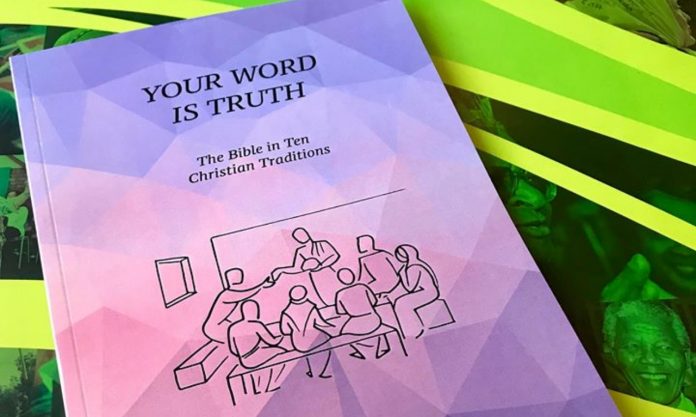United Bible Societies (UBS) and the World Council of Churches (WCC) have released a joint publication entitled Your Word Is Truth: The Bible in Ten Christian Traditions. The book is a collection of essays by theologians and historians on how the Bible is used and understood in various traditions.
Focusing on ten streams of historic Christianity within the Catholic, Protestant, and Orthodox traditions, the experts in this volume showcase the distinctive ways in which encountering the Bible—in all its power and perplexity—has profoundly inspired, informed, and shaped each tradition.
The book is the latest in a series of publications timed to coincide with celebrations of the 70th anniversary of the World Council of Churches, a period marked by increased consultation and collaboration among diverse Christian faith communities.
The WCC and UBS each work with a wide spectrum of churches. This collection invites people from around the world to experience the scriptures in a new way and to see the Bible through the eyes of another tradition. The publication revives a long history between the WCC and UBS of working together to nurture engagement with scripture as a unifying element in ecumenical, interconfessional relations.
Rev. Dr Olav Fykse Tveit, general secretary of the WCC confirms: “The monumental shift in Christianity’s global presence dictates a special attention to the Bible’s message of inclusion and its vision of justice. No matter the divisions and different emphases of each region and confession, we still answer to the same Lord and the same gospel imperatives. A biblically inspired, engaged discipleship, including reading and praying the Bible, has perhaps never been as needed as today.”
Michael Perreau, Director General of UBS, commends the publication: “For scholars and translators, theologians and pastors, as well as Christians everywhere, I hope that this vital resource enables deeper and broader understanding of the Bible’s living legacy and the vibrant traditions it continues to animate. For Bible Societies, it has already become a textbook we turn to.”
World Council of Churches, oikoumene.org















